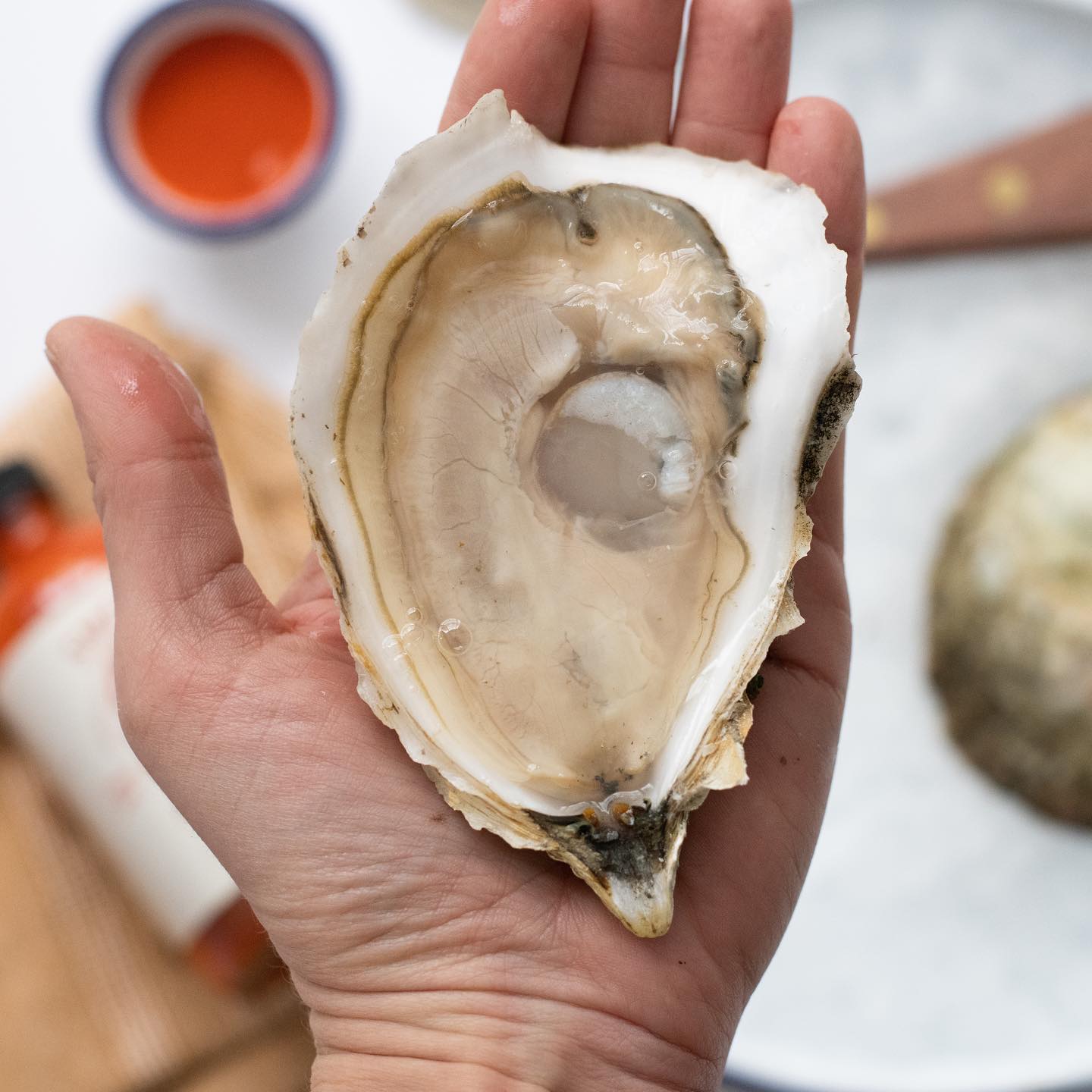
In 2000, after years of experimentation, Island Creek Oysters finally began harvesting enough oysters to operate on a full-time basis. Today, Island Creek is a vertically integrated farm that includes a shellfish hatchery, a distribution company, retail shops and restaurants, and an international development NGO.
Island Creek Oysters saw the FSIG grant opportunity and considered it through the lens of food insecurity and how it affects Massachusetts aquaculture, which was dramatically impacted due to the economic downturn of the pandemic and the closure of restaurants. Because of the disruptions, many oysters grew too large for the premium cocktail market. Island Creek looked into ways to recoup the value of those oysters as they continued to grow, as these oysters can represent 20-30% of a crop, a significant loss if they can’t be sold.
Island Creek identified canning as a solution to conserve their crop, processing the oysters so they are shelf-stable. With $416,000 in FSIG funding, Island Creek will build a canning facility to buy oysters that are about to outgrow the premium market or, due to their size, shape, or market conditions would otherwise sell at a discount. They will also can clams and tuna. This facility would create the first shelf-stable product line on the Eastern seaboard. The disruptions to the market over the past year meant that thousands of oysters would have been wasted, but by canning them a plant can make them shelf-stable, and the farmers can keep harvesting younger oysters for other markets.
This facility will be the only cannery on the eastern seaboard, and will provide a brand new market opportunity for Island Creek and the overall shellfish industry. Finding an appropriately sized space in New Bedford to host the facility has been the biggest roadblock.
With this project, Island Creek aims to change the market by introducing the first Eastern canned fish product, reduce the costs of oysters, and make them easy and affordable for Massachusetts residents to purchase and consume.